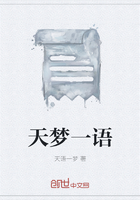The queen then moved on to the great hall, leaning on two of Sir Amyas Paulet's gentlemen, accompanied and followed by the earls and lords, the sheriff walking before her, and Andrew Melville bearing her train. Her dress, as carefully chosen as possible, as we have said, consisted of a coif of fine cambric, trimmed with lace, with a lace veil thrown back and falling to the ground behind. She wore a cloak of black stamped satin lined with black taffetas and trimmed in front with sable, with a long train and sleeves hanging to the ground; the buttons were of jet in the shape of acorns and surrounded with pearls, her collar in the Italian style; her doublet was of figured black satin, and underneath she wore stays, laced behind, in crimson satin, edged with velvet of the same colour; a gold cross hung by a pomander chain at her neck, and two rosaries at her girdle: it was thus she entered the great hall where the scaffold was erected.
It was a platform twelve feet wide, raised about two feet from the floor, surrounded with barriers and covered with black serge, and on it were a little chair, a cushion to kneel on, and a block also covered in black. Just as, having mounted the steps, she set foot on the fatal boards, the executioner came forward, and; asking forgiveness for the duty he was about to perform, kneeled, hiding behind him his axe. Mary saw it, however, and cried--
"Ah! I would rather have been beheaded in the French way, with a sword!..."
"It is not my fault, madam," said the executioner, "if this last wish of your Majesty cannot be fulfilled; but, not having been instructed to bring a sword, and having found this axe here only, I am obliged to use it. Will that prevent your pardoning me, then?"
"I pardon you, my friend," said Mary, "and in proof of it, here is my hand to kiss."
The executioner put his lips to the queen's hand, rose and approached the chair. Mary sat down, and the Earls of Kent and Shrewsbury standing on her left, the sheriff and his officers before her, Amyas Paulet behind, and outside the barrier the lords, knights, and gentlemen, numbering nearly two hundred and fifty, Robert Beale for the second time read the warrant for execution, and as he was beginning the servants who had been fetched came into the hall and placed themselves behind the scaffold, the men mounted upon a bench put back against the wall, and the women kneeling in front of it; and a little spaniel, of which the queen was very fond, came quietly, as if he feared to be driven away, and lay down near his mistress.
The queen listened to the reading of the warrant without seeming to pay much attention, as if it had concerned someone else, and with a countenance as calm and even as joyous as if it had been a pardon and not a sentence of death; then, when Beale had ended, and having ended, cried in a loud voice, "God save Queen Elizabeth!" to which no one made any response, Mary signed herself with the cross, and, rising without any change of expression, and, on the contrary, lovelier than ever--
"My lords," said she, "I am a queen-born sovereign princess, and not subject to law,--a near relation of the Queen of England, and her rightful heir; for a long time I have been a prisoner in this country, I have suffered here much tribulation and many evils that no one had the right to inflict, and now, to crown all, I am about to lose my life. Well, my lords, bear witness that I die in the Catholic faith, thanking God for letting me die for His holy cause, and protesting, to-day as every day, in public as in private, that I have never plotted, consented to, nor desired the queen's death, nor any other thing against her person; but that, on the contrary, I have always loved her, and have always offered her good and reasonable conditions to put an end to the troubles of the kingdom and deliver me from my captivity, without my having ever been honoured with a reply from her; and all this, my lords, you well know. Finally, my enemies have attained their end, which was to put me to death:
I do not pardon them less for it than I pardon all those who have attempted anything against me. After my, death, the authors of it will be known. But I die without accusing anyone, for fear the Lord should hear me and avenge me."
Upon this, whether he was afraid that such a speech by so great a queen should soften the assembly too much, or whether he found that all these words were ****** too much delay, the Dean of Peterborough placed himself before Mary, and, leaning on the barrier--
"Madam," he said, "my much honoured mistress has commanded me to come to you--" But at these words, Mary, turning and interrupting him "Mr. Dean," she answered in a loud voice, "I have nothing to do with you; I do not wish to hear you, and beg you to withdraw."
"Madam," said the dean, persisting in spite of this resolve expressed in such firm and precise terms, "you have but a moment longer: change your opinions, abjure your errors, and put your faith in Jesus Christ alone, that you may be saved through Him."
"Everything you can say is useless," replied the queen, "and you will gain nothing by it; be silent, then, I beg you, and let me die in peace."
And as she saw that he wanted to go on, she sat down on the other side of the chair and turned her back to him; but the dean immediately walked round the scaffold till he faced her again; then, as he was going to speak, the queen turned about once more, and sat as at first. Seeing which the Earl of Shrewsbury said--
"Madam, truly I despair that you are so attached to this folly of papacy: allow us, if it please you, to pray for you."
"My lord," the queen answered, "if you desire to pray for me, I thank you, for the intention is good; but I cannot join in your prayers, for we are not of the same religion."















